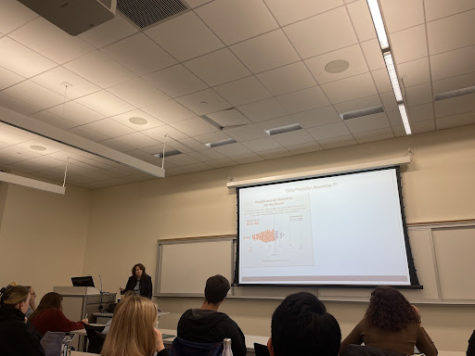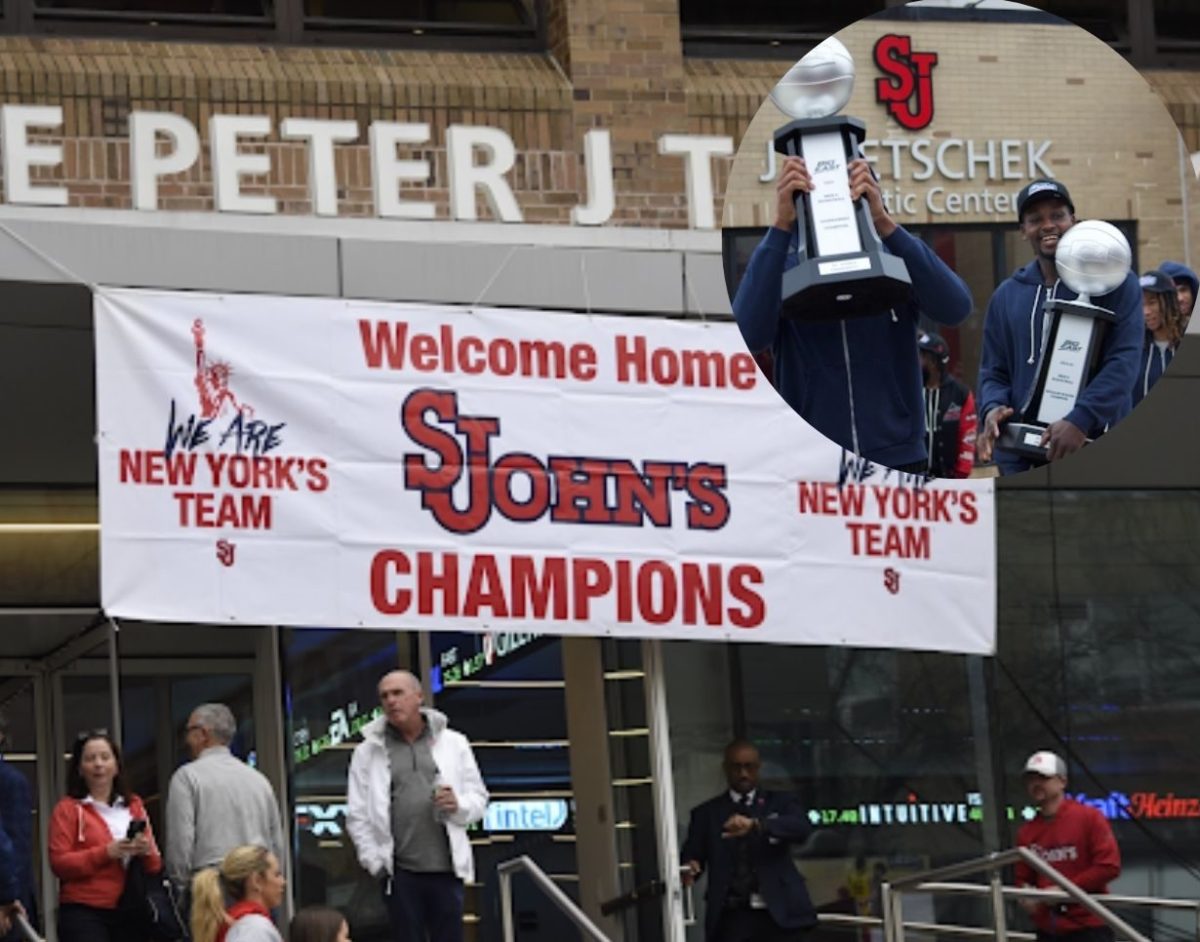
Torch Photo / Olivia Seaman
Students and faculty gathered in the D’Angelo Center on Nov. 14 for a biennial election recap held by the St. John’s University Government and Politics Department. The event, titled “Election 2022: What Happened and What’s Next,” provided a midterm election recap from a political science perspective.
The event was hosted by Prof. Diane J. Heith, Ph.D. of the University’s Government and Politics program. The Brown University alumna specializes in the “presidency, public opinion, campaigns and elections and the media.” Heith is a distinguished author with works in The New York Times and Public Opinion Quarterly.
Heith began by discussing long-term structural forces that influenced the election results. Among these include the referendum model, which states that the current party in power will lose midterm seats, and the surge and decline model, which claims that the ‘in’ party is less enthusiastic than the ‘out’ party in the midterm elections. Americans saw this model in practice as the U.S. House of Representatives shifted from Democratic to Republican control.. However, Heith claims that Democrats were far more enthusiastic than their GOP counterparts, which helped them retain Senate control.
The professor continued to emphasize the prediction of a “red wave” and doom of Democrats which political scientists theorized for the 2022 election – which failed to happen. Heith quickly refuted the red wave and claimed that the Dobbs v. Jackson Women’s Health Organization – which overturned Roe v. Wade’s decision – was the cause.
Heith told students that before Dobbs, historical narratives dominated the political landscape. Following the events of Jan. 6, the overturning of Roe v. Wade and the pursuit of former president Donald Trump’s White House documents, journalists covered events differently and were more involved in the political process.
Sophomore public administration and public service student Lydia Woodley was among the students in the lecture who supports this claim. “I learned about how the Dobbs case and short-term politics drove election results,” she said. “It didn’t matter what happened before June, once Dobbs hit and other political debates started to find their way to the spotlight, the battleground started to change and couldn’t go back.”
Heith used diagrams to show election predictions and voter turnout in each state. During this segment, she underscored the importance of the 2022 election cycle. “What we do actually matters,” Heith said. “When people do something different we get an uncertain outcome. This is why it always matters what people do”
Her thoughts remained true in battleground states like Pennsylvania, which had a 55 percent (5.4 million) voter turnout rate. The state produced one of the most competitive races of the election, with Democrat John Fetterman defeating Dr. Mehmet Oz, flipping a GOP senate seat, and Democrat Josh Shapiro prevailing against Trump-backed Doug Mastriano in the gubernatorial race.
The lecture featured CNN exit polls, which outlined voter demographics in the election cycle. Democrats relied on younger voters from the ages of 18-39, while Republicans relied on voters 40-65+. Democrats believed that that abortion and gun policy were most at stake in 2022 while Republicans value crime, inflation and immigration most in 2022.
Heith closed with a segment titled “Where Do We Go From Here?,” where she laid the groundwork for 2024. She believes that Gov. Ron DeSantis will be the GOP’s frontrunner, and foresees a divided Republican party.
She also touched on lessons learned from this election. She talks about how starpower isn’t enough to win elections. Dr. Oz, Georgia’s Stacey Abrams and Texas’ Beto O’Rourke did not have what it took to win. Heith also touched on candidate quality in states such as Pennsylvania and Arizona, where Trump-backed election-deniers Mastriano and Kari Lake lost their respective races.
Sophomore government and politics student Gabriella Onesto came to the event because the cycle hit home for her. “I was interested in hearing more analysis on why the elections turned out the way they did and what the impact of that would be,” she said. “I work for the Board of Elections on Long Island, and from my perspective in working at the polls and seeing and talking to so many different people in this position.”
“The seat in my own congressional district flipped from Democrat to Republican after being a Democratic stronghold for a long time, so there’s also a personal connection to wanting to understand the logistical and statistical perspective of voting and government, because it does impact me,” Onesto said.
While students must wait until 2024 for Heith’s next talk, the University’s government and politics department offers classes on campaigns and elections, American national government and public opinion and politics – all taught by Heith.









